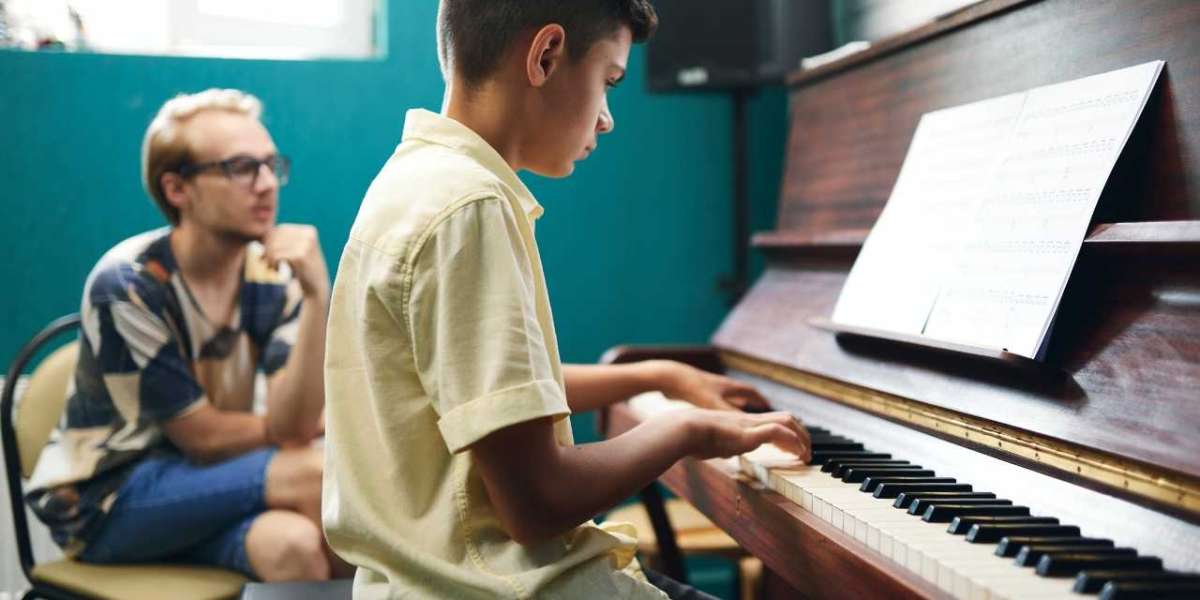The Psychological Benefits of Music
Enhancing Emotional Expression
Music allows individuals to express their emotions in ways words often cannot. Learning an instrument or singing enables students to channel their feelings, creating a healthy outlet for emotional expression.
Reducing Stress and Anxiety
Engaging in music lessons has been shown to reduce stress and anxiety. The act of playing an instrument or singing can be a form of meditation, providing a break from the pressures of daily life and promoting mental well-being.
The Social Impact of Music Lessons
Building Social Skills
Music lessons, especially group ones, provide a platform for interaction and collaboration. Students learn to communicate, cooperate, and share ideas, all of which are essential social skills that contribute to increased confidence.
Creating a Sense of Belonging
Participating in music lessons helps students feel part of a community. This sense of belonging can significantly boost self-esteem, as individuals feel supported and valued within their group.
The Educational Advantages
Developing Discipline and Patience
Learning music requires consistent practice and dedication. This process helps students develop discipline and patience, qualities that are essential for personal and academic success.
Enhancing Cognitive Abilities
Studies have shown that music education can enhance cognitive abilities, including memory, attention, and problem-solving skills. These improvements contribute to a student’s overall confidence in their intellectual capabilities.
The Role of Performance
Overcoming Stage Fright
One of the most significant confidence-building aspects of music lessons is the opportunity to perform. Overcoming stage fright and performing in front of an audience helps students build resilience and self-assurance.
Celebrating Achievements
Performances provide a platform to showcase progress and celebrate achievements. This recognition and positive reinforcement are crucial for boosting confidence and motivating continued effort and improvement.
The Influence of a Supportive Teacher
Personalized Guidance
A supportive music teacher plays a vital role in building confidence. Personalized guidance and encouragement help students overcome challenges and recognize their potential.
Creating a Positive Learning Environment
Teachers who create a positive and nurturing learning environment foster a sense of safety and acceptance. This environment is conducive to taking risks, making mistakes, and ultimately growing in confidence.
The Impact of Setting and Achieving Goals
Short-term Goals
Setting and achieving short-term goals in music lessons provides immediate gratification and a sense of accomplishment. These small victories are important stepping stones in building self-confidence.
Long-term Aspirations
Working towards long-term aspirations, such as mastering an instrument or performing a challenging piece, helps students develop perseverance and confidence in their abilities to achieve significant goals.
The Value of Peer Support
Learning from Peers
Peer support is a powerful component of music education. Students often learn from each other, gaining insights and encouragement from their peers’ experiences and successes.
Building Collaborative Skills
Collaborative activities, such as ensemble playing or group performances, teach students to work together towards a common goal. This collaboration enhances interpersonal skills and boosts confidence.
The Role of Technology in Music Education
Access to Resources
Technology provides access to a wealth of resources that can enhance music education. Online tutorials, practice tools, and virtual performances offer additional support and opportunities for growth.
Innovative Learning Methods
Incorporating technology into music lessons can make learning more engaging and interactive. Innovative methods, such as music apps and software, can boost confidence by making practice and progress more enjoyable.
The Cultural Benefits of Music Lessons in San Francisco
Exposure to Diverse Music Traditions
San Francisco’s rich cultural landscape offers exposure to diverse music traditions. This cultural diversity enhances students’ appreciation for different musical styles and broadens their horizons.
Opportunities for Cultural Engagement
Music lessons in San Francisco often provide opportunities for cultural engagement, such as participating in local festivals and events. These experiences enrich students’ understanding and appreciation of music as a universal language.
Personal Stories of Confidence Building
Real-life Examples
Sharing real-life examples of individuals who have built confidence through music lessons can be inspiring. These stories highlight the transformative power of music education and its impact on personal growth.
Lessons Learned
Personal stories also provide valuable lessons learned from the journey of learning music. These insights can motivate and encourage others to pursue their musical aspirations and build confidence along the way.
Conclusion
Music lessons in San Francisco offer much more than just the ability to play an instrument or sing. They provide a holistic experience that nurtures emotional, social, and cognitive development. By offering opportunities for emotional expression, social interaction, performance, and personal achievement, music lessons play a crucial role in building confidence. Whether you are a beginner or an advanced student, the journey of learning music is a transformative one, filled with milestones that contribute to a stronger, more confident self. Embrace the power of music lessons in San Francisco, and discover the confidence that comes from expressing yourself through the universal language of music. Craft Music is here to support you every step of the way. Happy learning and playing!
 Meet Ups
Meet Ups
 Experiences
Experiences
 Learning Center
Learning Center
 Accommodation
Accommodation
 Roomie
Roomie
 Ride
Ride
 Spread the Word
Spread the Word
 Student Bazaar
Student Bazaar
 Jobs
Jobs
 Blogs
Blogs
 Sobre StudentInsta
Sobre StudentInsta

